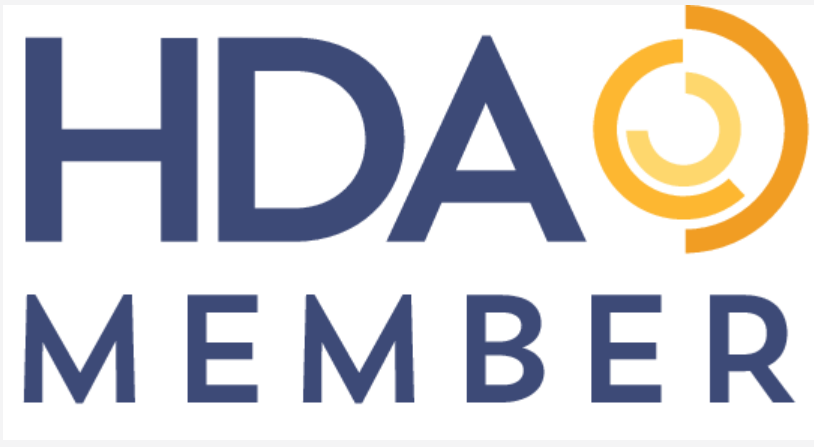DSCSA 2024 Ten Count: Number 8- Two-Year Exemption for Small Dispensers

As we turn the calendar to 2025 and continue the journey towards DSCSA being fully operational across the supply chain, Ten Count Consulting reflects on 2024 with our DSCSA 2024 Ten Count. Ten Count Consulting's list of top DSCSA moments and stories from 2024.
Number 8:
FDA Grants Two-Year Exemption for Small Dispensers

As the end of the DSCSA Stabilization Period was approaching in November 2024, the FDA issued a significant exemption for small dispensers, sparking questions and discussions across the pharmaceutical supply chain. This exemption is essential for small dispensers navigating compliance while managing limited resources.
What Is the Small Dispenser Exemption?
The FDA Exemption, issued June 12, 2024, and revised July 12th, grants dispensers that qualify as “small” exemption from specific DSCSA requirements. According to the FDA, a “small dispenser” is defined as a dispenser with 25 or fewer full-time employees (pharmacist/techs) as of November, 2024. This exemption alleviates some of the regulatory burdens associated with electronic and interoperable methods for two years.
However, at the time of this exemption’s release, it was noteworthy that no similar exemptions were issued for other trading partners, such as manufacturers, wholesale distributors, and dispensers that didn’t meet the “small” definition. The FDA emphasized the importance of submitting a (WEE) request by August 1, 2024, for trading partners seeking relief beyond the November deadline. (This set off a bit of a scramble to understand what waivers, exceptions, and exemptions were and whether an entity should submit a request).
Key Takeaways from the Small Dispenser Exemption: (NABP posted a great blog post explaining what small dispensers were and weren’t exempt from)
- Temporary Relief: Small dispensers are exempt from certain interoperability and electronic methods for DSCSA requirements
- Verification Responsibility Remains: The exemption does not absolve dispensers of their obligation to verify the legitimacy of their trading partners and ensure the drugs they receive are safe and compliant.
- Encouragement to Engage: The FDA’s guidance encourages small dispensers to proactively work toward compliance, rather than viewing the exemption as an indefinite reprieve.
Challenges for Small Dispensers
Small dispensers operate in a unique environment, facing challenges that larger organizations may not fully appreciate:
1. Who can I trust?
Navigating DSCSA compliance often involves sorting through conflicting advice. Many small dispensers struggle to determine which resources or partners to trust for accurate, actionable guidance and avoid "sales-minded perspectives" from solution providers.
2. Investment Pressures
The cost of implementing DSCSA-compliant solutions can be daunting. Small dispensers have and continue to face many challenges to keep their businesses going, while always doing more with less. Many feel pressured to invest in costly technical systems (especially with zealous sales calls) without fully understanding if they are necessary or add sufficient long-term value for their situation.
3. Operational Impact
Compliance efforts must be balanced with maintaining the operational flow within the pharmacy. Implementing DSCSA requirements without disrupting patient care or increasing administrative burdens on staff is a delicate task.
4. Resource Constraints
With limited staff and financial resources, small dispensers must juggle compliance with other critical business priorities.
While the small dispenser exemption provides temporary relief, the ultimate goal remains full DSCSA compliance. To achieve this, small dispensers should:
- Build Trusted Relationships: Collaborate with reputable partners who offer clear and practical guidance, independent of pressure to buy “their” solution. Understand what wholesale distributors can and cannot do to help with DSCSA compliance. HDA has published a good guide here.
- Review Policies and Procedures: Understand what requirements you need to be complying with today and make sure your policies and procedures support the requirements.
- Training: Train staff on DSCSA and updated policies and procedures.
- Seek Scalable Solutions: If determination is made that a technical solution is needed, invest in cost-effective systems that align with current needs and can scale as business needs evolve.
- Engage in Industry Dialogues: Participate in discussions and forums to stay informed about best practices and emerging solutions. Make sure the small dispenser voice is heard in industry collaboration forums.
Conclusion
The FDA’s small dispenser exemption reflects an understanding of the challenges faced by smaller dispensers in the pharmaceutical supply chain. However, this relief is not a substitute for long-term compliance efforts. By leveraging this exemption wisely and addressing key challenges head-on, small dispensers can achieve compliance while maintaining their vital role in delivering safe and effective medications to patients.
For personalized guidance on navigating DSCSA compliance, contact our team at Ten Count Consulting. We’re here to help you succeed.
The List Revealed So Far:
Number 9: FDA 483s Issued for DSCSA Requirements
Stay tuned to our blog over the coming days as we share the remaining 7 highlights of 2024!
Number 7
Number 6
Number 5
Number 4
Number 3
Number 2
Number 1




